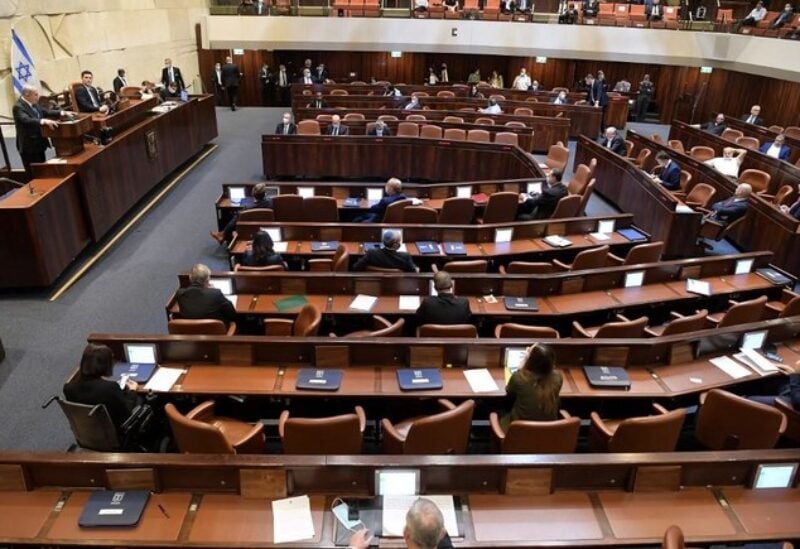
Israeli Knesset
Israel is set on the path to its fifth election in less than four years, as Lawmakers on Wednesday voted in favor of a preliminary vote to dissolve the Knesset.
The timing might have been unexpected but, for many Israelis, the announcement didn’t come as much of a surprise. In recent weeks, more signs emerged that Israel’s coalition government of eight parties was nearing the end of its rope.
On Monday evening, Israeli Prime Minister Naftali Bennett and Foreign Minister Yair Lapid announced in a joint statement that they had agreed to hold a vote to dissolve the Knesset and to call for new parliamentary elections, which will most likely take place in October.
“It is not an easy moment but we took the right decision,” Bennett said Monday, speaking at a televised news conference alongside Lapid shortly after the statement, adding that they had done everything to hold the coalition together.
Yair Lapid praised his coalition partner, saying that he, “put the country before his own interests.” He also stressed that “a year ago we started the process of rebuilding and now we are carrying it on, carrying it on together,” adding that it was important to, “go back to the concept of Israeli unity.”
By next week, if the vote to dissolve parliament goes through, Naftali Bennett will step aside in favor of Yair Lapid, who will become prime minister of the caretaker government until a new government is formed.
The prospect of new elections refreshes the potential for a return to office of former longtime prime minister, Benjamin Netanyahu, who has led the opposition ever since he yielded the premiership about a year ago. Israeli media reported that Bennett might consider taking a pause from politics altogether.
This, after having partnered with alternate prime minister Yair Lapid in leading the most diverse Israeli coalition government in recent history: A coalition made up of right-wing and religious Jewish nationalists who oppose Palestinian statehood; centrist lawmakers; left-wingers opposing settlements; as well as a conservative Arab party far exceeded the expectations of many in maintaining cohesion for about one year.
Eight-party coalition
While it only lasted one year, the ideologically diverse coalition was hailed by supporters as vital in healing political divisions in a polarized country. In recent months, however, the government had struggled.
“The Netanyahu camp was very united and the coalition camp was very disunited. Having so many different ideologies, different parties from the beginning, this is what many people expected,” said Yonatan Freeman, international relations expert at Hebrew University in Jerusalem, to DW.
In April, a lawmaker from Naftali Bennett’s hardline Yamina party left the coalition, causing it to lose its razor-thin majority of 61 out of the 120 parliamentary seats in the Knesset. Other parliamentarians — including from left-wing Meretz and the Ra ‘ am party — either threatened to quit or have not supported the coalition by absenting from important votes in the Knesset.
“At the end, we had really a frozen ability of the government to pass any kind of legislation, as we recently saw,” adds Freeman.
The coalition couldn’t withstand the failure to extend emergency legislation that applies Israeli law and regulates civil matters in settlements located in the occupied West Bank. The expiration of the current term of the legislation by end of June forced the issue on the government when its coalition had already reached a fragile stage.
The automatic extension for many years of applying the law by right-wing and center-left governments suddenly became a political pressure tool. Seizing the opportunity, the Netanyahu-led opposition pushed for a vote against any government-sponsored bill, to further paralyze proceedings on the issue.
Speaking of the emergency law, Prime Minister Naftali Bennett said its expiration would have had serious security repercussions, adding “there would have been chaos. I couldn’t let that happen.”